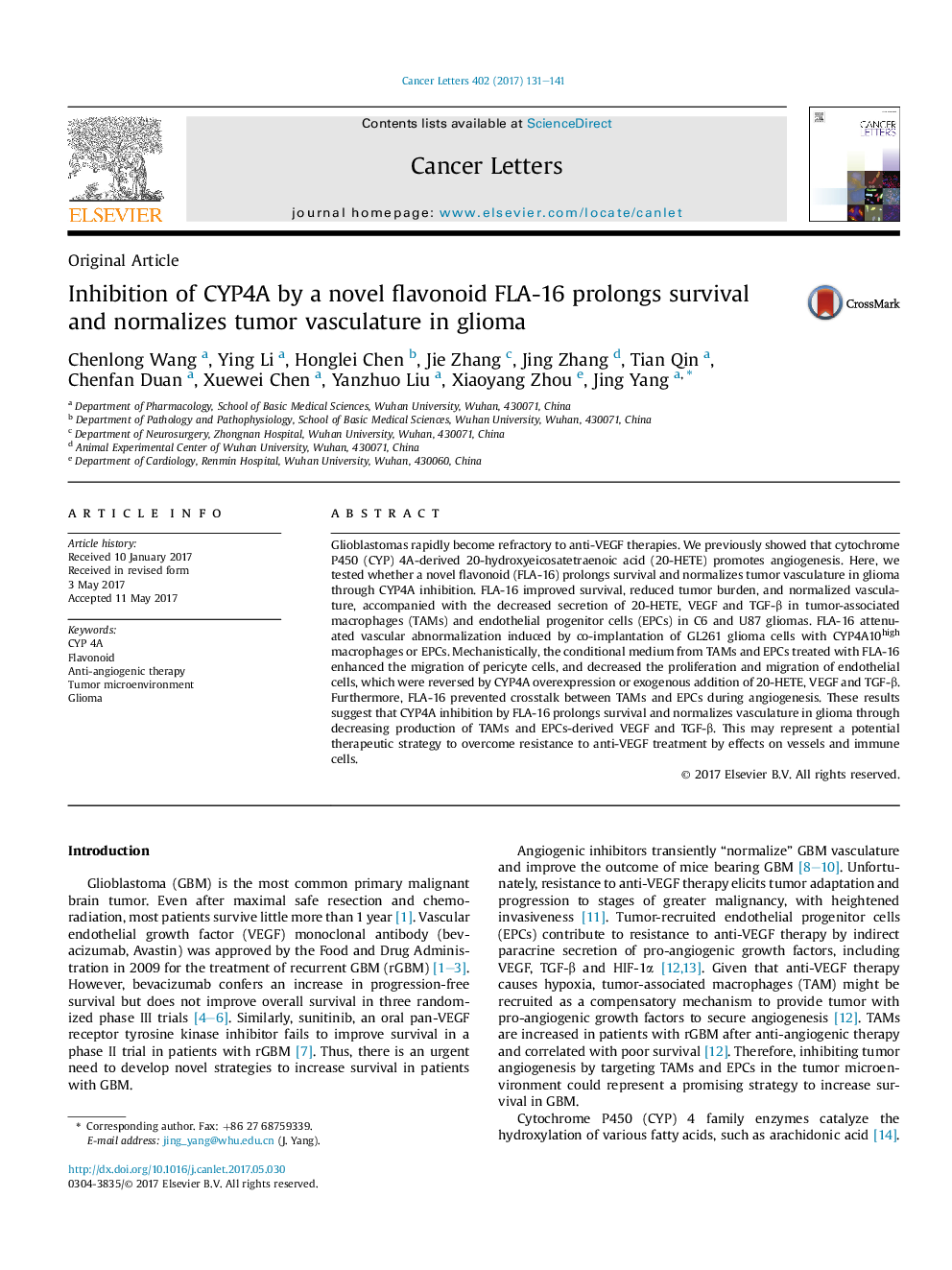| Article ID | Journal | Published Year | Pages | File Type |
|---|---|---|---|---|
| 5525225 | Cancer Letters | 2017 | 11 Pages |
â¢Flavonoid FLA-16 prolongs survival and normalizes tumor vasculature in glioma.â¢CYP4A inhibition in TAMs and EPCs decreases VEGF and TGF-β production.â¢FLA-16 prevents synergism of TAMs with EPCs during angiogenesis.â¢Targeting TAMs and EPCs provides clues to overcome resistance to anti-VEGF therapy.
Glioblastomas rapidly become refractory to anti-VEGF therapies. We previously showed that cytochrome P450 (CYP) 4A-derived 20-hydroxyeicosatetraenoic acid (20-HETE) promotes angiogenesis. Here, we tested whether a novel flavonoid (FLA-16) prolongs survival and normalizes tumor vasculature in glioma through CYP4A inhibition. FLA-16 improved survival, reduced tumor burden, and normalized vasculature, accompanied with the decreased secretion of 20-HETE, VEGF and TGF-β in tumor-associated macrophages (TAMs) and endothelial progenitor cells (EPCs) in C6 and U87 gliomas. FLA-16 attenuated vascular abnormalization induced by co-implantation of GL261 glioma cells with CYP4A10high macrophages or EPCs. Mechanistically, the conditional medium from TAMs and EPCs treated with FLA-16 enhanced the migration of pericyte cells, and decreased the proliferation and migration of endothelial cells, which were reversed by CYP4A overexpression or exogenous addition of 20-HETE, VEGF and TGF-β. Furthermore, FLA-16 prevented crosstalk between TAMs and EPCs during angiogenesis. These results suggest that CYP4A inhibition by FLA-16 prolongs survival and normalizes vasculature in glioma through decreasing production of TAMs and EPCs-derived VEGF and TGF-β. This may represent a potential therapeutic strategy to overcome resistance to anti-VEGF treatment by effects on vessels and immune cells.
